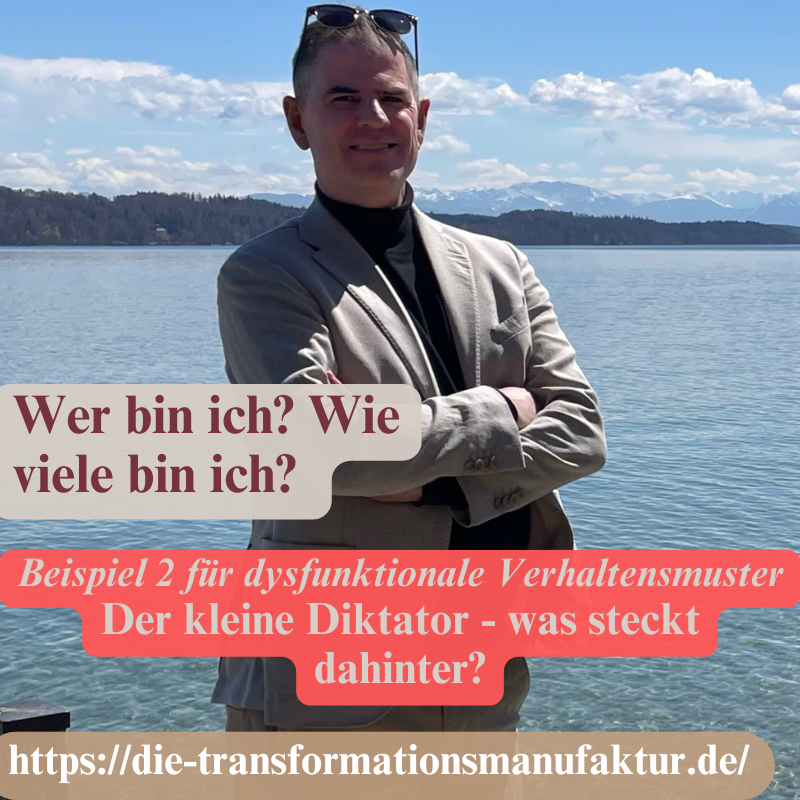“Are you all stupid? What’s with the ….? Now I’ll tell you what’s going on here. Stop thinking for yourselves, you’ll only come up with nonsense anyway. Now you do what I say! Discipline and quality … But hurry up!”
Ever heard of it? The little (or big) dictator (or dictatoress)? The one who critically controls and is not always appreciative in his choice of words? Who sometimes ‘makes a mess of’ employees? Yes, maybe ‘his store’ is running. And what’s so bad about a running store? The team as small, perfect machines? People? What is that?
Are you smiling with a slightly sad feeling? Or are you frustrated because you are experiencing exactly this situation yourself?
On the one hand, a dictator-like leadership style is often based on an outdated self-image of leadership. On the other hand – and this is our perspective in coaching – there are often deep psychological fears behind such behavioral patterns.
Perhaps behind the ‘mask’ of the little dictator is someone who, in the language of transactional analysis (TA), has a strong ego state in the so-called critical parent ego (kEl) (for the 6 ego parts of TA and why this concept is the central basis of our work, please refer to my two introductory posts).
If these “critical”, “controlling” patterns are strong, this can be a sign that the manager has a very deep-seated fear of making mistakes, of failure and ultimately of confirmation of a strong, sometimes unconscious lack of self-esteem.
Our coaching is about understanding these deep self-esteem issues. And helping our clients to achieve more inner peace, inner security and strength – including in their self-worth – from there. As a manager and as a person.
When our customers succeed in following this path, it is not only their satisfaction and self-esteem that changes. It changes their size, strength and openness in their leadership role.
This change radiates back into the teams. Then truly high-performance teams can emerge that deliver high quality, but can also be creative and innovative. Who go the last mile together with the manager.
It is important to note that a strong critical parent ego is not bad per se. It can recognize risks at an early stage, know when high quality and accuracy are important and then identify development potential for the team and team members.
Would you like to get to know your ego states? Finding ways to more freedom, peace and energy? Taking the ‘wheel’ back into your own hands?
I would be happy to conduct an initial analysis of your ego states and patterns with you and reflect on the results together with you. Get in touch if you would like to know more about this “Short-term coaching on ego states”!
This article is part of the following mini-series on transactional analysis:
- How many am I? – A motivating introduction to transactional analysis
- How many am I? – The methodological and conceptual foundations of our coaching
- How many am I? Or: The caring and controlling project mother
- How many am I? Or: The little dictator
- How many am I? Or: The cold ice princess
- How many am I? Or: ‘The adapted little one’ with the explosions
- How many am I? Or: The rebel and the always bad world
- How many am I? Or: The imprisoned, deeply unhappy artist and free spirit









